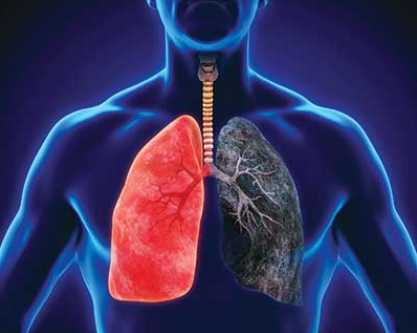Symptoms and Treatment of Epithelioid Mesothelioma
Epithelioid mesothelioma is the most common form of the disease, with the cell type found in about 70% of all mesothelioma patients. When someone is exposed to asbestos dust or fibres, the epithelial cells can become cancerous and mutate they may then develop in the linings of the lungs, abdomen or heart.
Normal epithelial cells differ in shape and can be found in single or multiple layers, depending on where they are located in the body. When the cells mutate, they may also develop in the lining of the lungs, abdomen or heart.

The cells tend to clump together in groups. Each cell is square, cubed or squamous (flat) in appearance, the squamous cells are commonly found in the lining of the lungs.
They are less likely to spread compared to sarcomatoid cells - one of the reasons why epithelial mesothelioma has the best prognosis of the different mesothelioma cell types.
Epithelioid cells typically divide faster than other cells. However, due to the way the cells form in clusters, they are slower to metastasize compared to other cell types.
What are the Symptoms of Epithelioid Mesothelioma?
The symptoms will vary depending on the age and health of the patient, also the cell type and the stage at diagnosis. Because of the relatively slow spread of epithelioid mesothelioma, patients may not experience severe symptoms until a later stage of disease.
Symptoms include:
- Shortness of breath
- Persistent dry cough
- Hoarseness
- Coughing up blood
- Low blood oxygen levels and anemia
- Fatigue and extreme tiredness
- Feeling full, even without eating
- Lack of appetite and nausea
- Weight loss
These symptoms, especially the cough and tiredness are also symptoms of other less serious conditions, so is vital to share any history of exposure to asbestos with doctors and consultants.
How is Epithelioid Mesothelioma Diagnosed?
Diagnosis for epithelioid mesothelioma usually starts with X-rays and/or CT scans. If the presence of a tumour is detected, a blood test may be ordered to identify biomarkers to determine if mesothelioma cells are present. A biopsy will be performed to confirm a diagnosis. This will be obtained with a fine-needle, thoracoscopy or video-assisted thoracic surgery.
A pathologist may also perform an analysis called immunohistochemistry, to determine the type of mesothelioma cells, as well as identify the stage and malignancy of the tumour. Antibodies are used to accurately identify epithelioid mesothelioma in patients.
What is the Prognosis for Epithelioid Mesothelioma Patients?
Prognosis depends the location and staging of the cancer, as well as age and any underlying health issues.
Patients with epithelioid mesothelioma cancer cells have a better prognosis and overall life expectancy than those with other cell types. Typically patients with epithelioid mesothelioma survive 1 to 2 years after diagnosis. Average survival is 18 months, compared with 10 months for patients with biphasic cells and 7 for those with sarcomatoid cells.
One recent study looked at survival of epithelial mesothelioma patients who underwent multimodal treatment.
They discovered that patients with:
- Epithelial mesothelioma have a median survival time of almost 2 years
- Biphasic mesothelioma have a median survival time of 1 year
- Sarcomatoid mesothelioma have a median survival time of 6 months
According to another 2020 study, prognosis of epithelioid mesothelioma patients is affected by a protein called connective tissue growth factor. People with lower levels of connective tissue growth factor had a better prognosis and would be more likely to live longer.
What are the treatment options for Epithelioid Mesothelioma Patients?
Chemotherapy is still considered to be the standard of care when treating epithelial mesothelioma. It may be used in combination with surgery, or as first-line therapy when surgery is not an option.
If diagnosed at an earlier stage, patients may be eligible for surgery, including pleurectomy and extrapleural pneumonectomy. These surgeries involve removing cancerous tissue from the lung and surrounding areas. The age and health of patients will also determine whether surgery is an option.
Immunotherapy is another treatment option for epithelial mesothelioma. A recent study found that patients treated with chemotherapy survived an average of 16 months, but patients treated with chemotherapy and immunotherapy survived for almost 19 months.
The epithelial cell type allows patients to access more aggressive treatment plans and innovative clinical trials such as gene therapy. In many cases, patients will be offered a multimodal treatment plan, when two or more methods of treatment are combined.
Some procedures can also be used as palliative treatments, which can lessen symptoms for patients.
For any questions on this or claiming compensation for epithelioid mesothelioma, please call on the number below and ask for Kathy or Warren

More Mesothelioma Pages
Mesothelioma cells: epithelial, sarcomatoid, biphasic and rarer types
Types of Malignant Mesothelioma. Information about the disease
Mesothelioma Symptoms - Pleural, Peritoneal and Pericardial
Mesothelioma Diagnosis, including Prognosis and Staging
Mesothelioma Treatment Options: Surgery, Radiation Therapy and Chemotherapy
Author
Kathy Cooke MA. BSc
Cancer consultant and advisor
Kathy has worked in the cancer field for over 30 years. She was course leader for the MSc in Radiotherapy and Oncology at University of Hertfordshire. Then pre-treatment radiotherapy manager at the Cromwell Hospital in London and Partnership Quality Lead for Macmillan Cancer Support.. Read more >













